From Singo’s jealous dog and Packer’s secret diet, to love, war and a sick stalker, TV legend Liz Hayes shares her life story at last
For the first time, TV legend Liz Hayes has opened up about her terrifying ordeal at the hands of a stalker – and how it all began with a chilling phone call at Channel 9.
Books
Don't miss out on the headlines from Books. Followed categories will be added to My News.
Her life began as farmer’s daughter Beth Ryan, but she became known to millions of Australians as LIZ HAYES. In this edited extract from her new memoir, the much-loved TV veteran shines a light on how it all began, the personal cost of her high-flying career, her relationship with Kerry Packer, a power struggle with John Singleton’s alpha dog and the hardest story she’s ever had to tell.
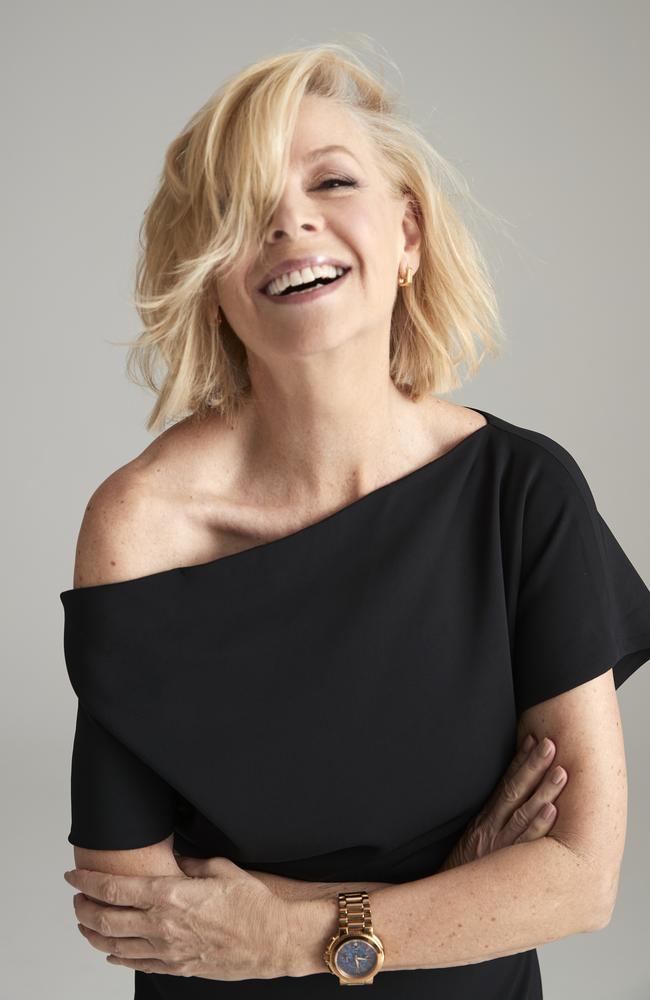
STANDING ON THE OUTSIDE
Books and school would be an awakening to life’s possibilities, but so too was this new thing called the telly.
As the ’60s gave way to the ’70s, the power of television was seeping into all our lives. For our family, like so many others awed by this new addition to most lounge rooms, the telly was fast becoming the main source of information and relaxation in the evening. Dad in particular loved watching the news. It was the one time we knew to be quiet. But it also meant that we too engaged in what was happening around us and across the globe.
Over those years, TV opened up the world with images in black and white and, eventually, colour. The Vietnam War, the death of JFK, and the moon landing. All became more than words. They were now moving pictures and very real.
I was enthralled and more than a little mesmerised by the telling of stories. I wanted to know what other people were experiencing, all the while noting how different my life was on so many levels. To hear about famine and why we should help meant much more when I saw the swollen bellies of children and the sad eyes of their mothers struggling to survive.
I remember thinking about the Vietnam War as a kid on the way home from school, and telling Dad later while helping in the dairy how I thought the war could be won. Equally, I recall his fatherly smile.
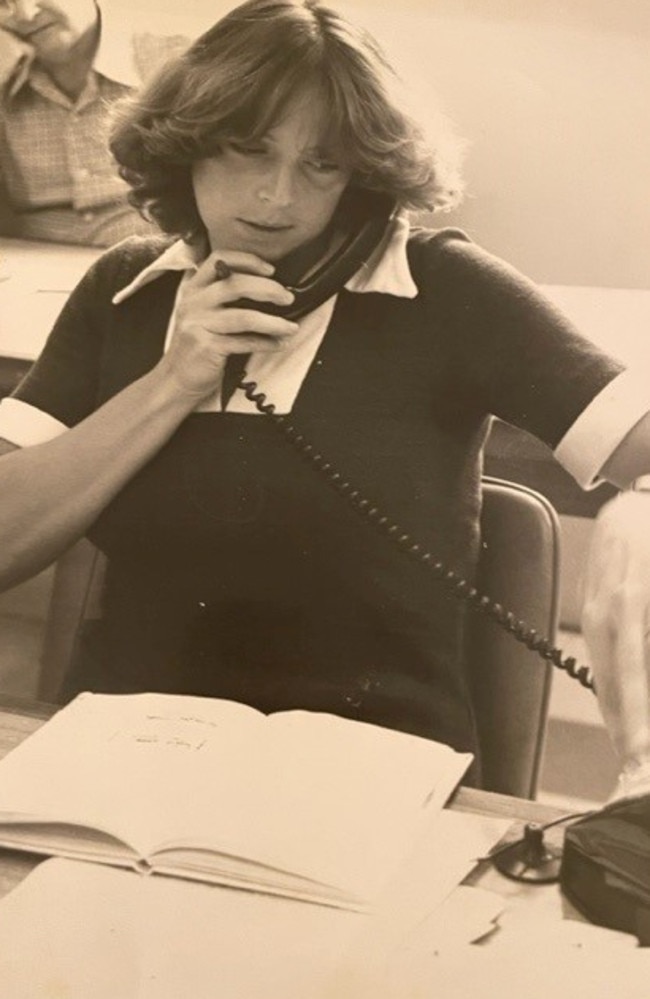
Barely into my teens, I’d often impersonate newsreaders and television hosts with their rounded English vowels, which I never quite captured. At high school, as part of our lessons, we would be asked to address the class. I’d channel those anchors of current affairs programs, hoping to exude their composure and confidence. I was often fighting fear while embracing exhilaration. There was something about standing before a crowd and the performance required to capture their attention. The judgement could be deadly and the humiliation very public. Without doubt the task required a rather large measure of self-belief.
An early mistake and I could totally unravel. Getting it right, however, felt very good. But never would I have believed I could fit into that little box of visual tricks in the corner. Television was for other people. Smart, entertaining and creative people. I was a girl from the farm.
But while I was standing on the outside looking in, I didn’t stop dreaming. The seed had been planted.
BECOMING THE STORY
Liz began work on a local newspaper, eventually moving to Sydney and finding her way into
TV – where things really took off.
Becoming the co-host of Today had taken my career to a new level, and my life to a place I was still trying to understand. I was highly visible and on daily public display. In this business I was also seen as a commodity, akin to a product on the supermarket shelf. A product it was hoped advertisers would want to buy and viewers would like. After a circuit of the sales department, one CEO told me ‘You’ve still got it,’ apparently according to advertisers.
Packaging and presentation counted. And not only because of what men said; women at home and at work were equally judgmental.
At different times women questioned me about my choice of clothing, my hair, and even the colour of my lipstick. ‘It makes me feel cold,’ a female television executive said of my more-purple-than-pink lips. Viewers didn’t miss a beat. My hair, according to one, made me look like Barry Manilow, the 1970s American singer who at least had some big hits. And my skirts, some declared, were too short. Admittedly, sometimes they might have been.
Looks mattered, was the message.
The scrutiny was endless and the communication sometimes unpleasant. A viewer incessantly wrote letters telling me how ordinary I was, while others were complimentary. But sometimes the contents of letters were just disgusting. One contained a used condom.
Today, very few letters make it to my desk unopened.
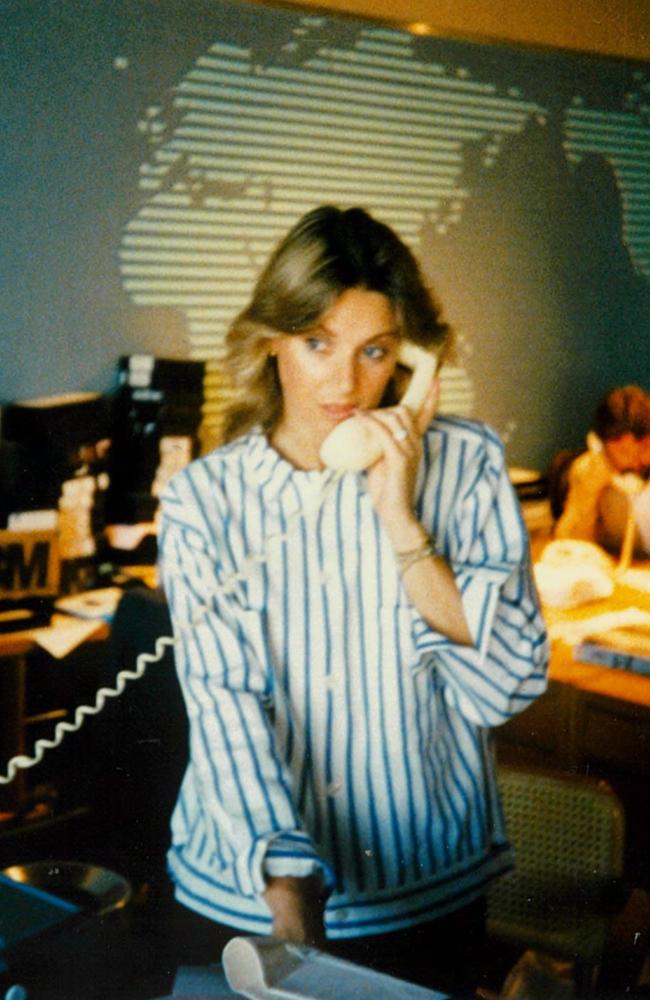
In the whirlwind of public exposure, I hadn’t anticipated that I would eventually become the story. The bigger my profile became, the more my personal life was the subject of tabloid headlines. Before I knew it, speculation was rife and my every move was being watched.
I’ve seen it happen scores of times since. To my friends, to my colleagues, to my rivals. It’s the cycle of public life. It reaffirms for me just how insatiable the human appetite is for the things that matter least. But gossip rules, and the more salacious, the greater the interest.
This would hit home pretty quickly when my first marriage ended. Bryan Hayes was the hardworking builder who had adjusted to his wife’s weird working hours with generosity and understanding. But my working life had taken over and my focus was now lost in my job and all that came with it. I have no doubt there were many times Bryan wondered, ‘Where’s Beth Ryan?’, and wanted to ask my new television world: ‘What have you done with her?’
I sometimes wondered too.
*
My new-found visibility had other unpleasant ramifications.
As I returned to my dressing room one morning with another show under my belt, my hand had barely turned the doorknob when the phone rang. It was a big, black, clunky contraption that sat on a table near the door and would only ring if someone at Nine knew this specific dressing-room number, or if the receptionist put through a call.
When it rang I knew it had to be someone I worked with or a caller who’d been carefully scrutinised. With barely a second thought, I picked up the receiver.
‘Hello,’ I answered, and almost immediately I knew I shouldn’t have.
‘Why didn’t you use my pen?’ asked a voice on the other end.
I was startled. ‘I’m sorry?’ I said, trying hard to think who this could be.
‘My pen. I sent you a pen.’
‘I’m sorry?’ I repeated. ‘I don’t know what you’re talking about.’
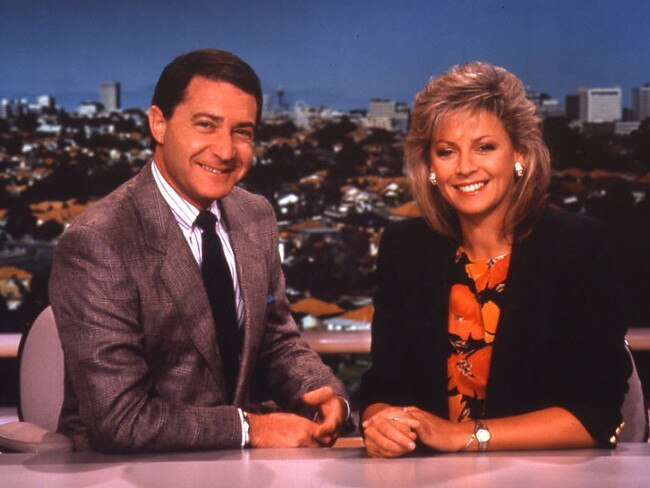
By now my mind was spinning. It was a man’s voice, mature and somewhat aggressive. For a moment I wondered which executive I was speaking to. A live studio feed of the show was available to most televisions in the offices of management. Who else would know when I’d be walking off the Today set? Even though we finished at 9am, my co-host Steve Liebmann and I would often have to stay in the studio to complete promos and prerecords.
‘I sent you a Waterman.’ So many things were sent to me unsolicited.
‘I’m sorry,’ I said, but my internal alarm bells were ringing. This person didn’t sound like any Nine executive I’d met. But the line was clear, and the voice felt close and intimidating. He hung up.
I dropped heavily onto the couch and sat there feeling stunned. Whoever it was, I thought, wanted me to know he was watching.
*
Some months later I was being stalked.
I don’t wish to dwell on the stalker, but I can describe how it made me feel and affected my thinking.
At first I tried to make sense of what was happening and rationalise how to deal with the issue. But as the stalking continued, I began to feel paranoid and overly alert. At home, I was constantly checking that doors and windows were locked and I didn’t like being alone.
Sometimes I would ring friends at night simply to try and talk myself to sleep.
There were times when security guards came to outside broadcasts and even my residence.
And when my mum and dad received a visit and then a private detective called to say he’d been hired by the same person to find me, my horror hit new heights. The joy drained from my life and it would take years before I regained the confidence to move about safely. I try not to think about it anymore so I can get on with my life, but in truth it’s still not the same.
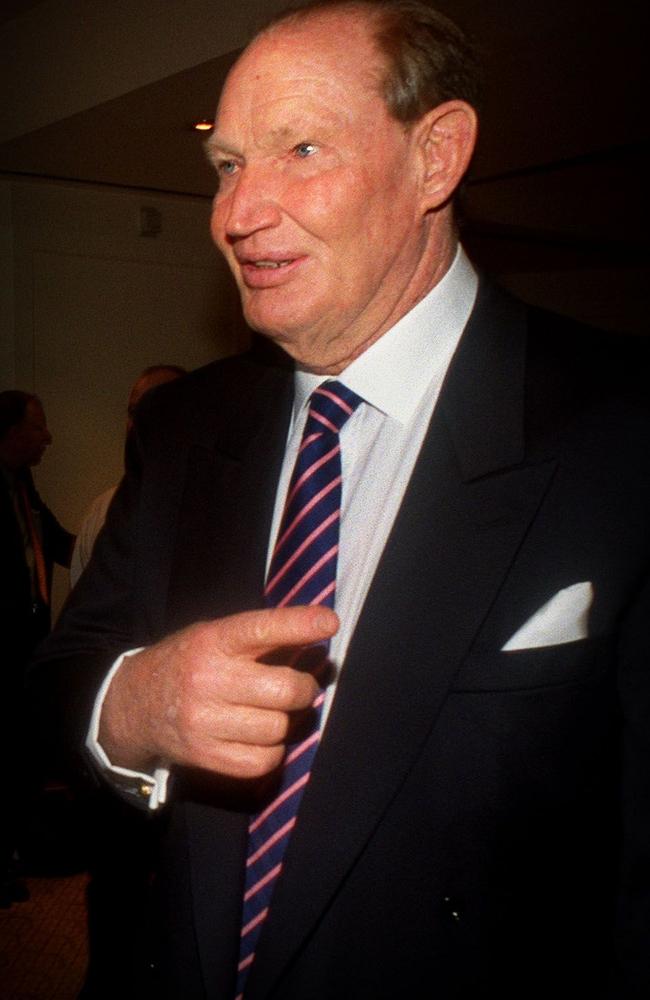
PACKER’S PICNIC
In the fast-paced world of media, Liz came to know many extraordinary characters, who fill
the pages of her memoir – among them the larger-than-life mogul Kerry Packer.
In 1990, three years after pocketing close to a billion dollars, Kerry Packer bought Nine back
from Alan Bond.
Having pulled off an extraordinary deal, the Kerry Packer who returned had a somewhat different hue. He seemed to believe there’d been too many undisciplined parties at his place while he was gone, excesses he apparently didn’t like. And I was quickly to find out he was none too pleased with the pay rise I’d negotiated for myself with the now-departed CEO Sam Chisholm.
I got to spend time with Kerry Packer when I was with John Singleton. They were good mates and socially he was inclusive and, surprisingly, on a few occasions our conversations strayed into personal territory.
When John and I were in his company I had a chance to hear and observe some of his personal frustrations. Weight was one of them. He was battling the bulge, and had done for a while.
But my relationship with Kerry was still slightly awkward, because he was also my boss.
In 1990, John and I met him in his expensive hotel suite in London. Kerry didn’t miss much, and he gave me a most curious task. While eyeing a trolley laden with delectable pastries and sweets, he asked me to obtain the details of a diet recently featured on Today.
I was on holidays, I had no idea what the diet was, and work was the last thing on my mind.
But now I had to make it my business to find out.
It was a weird call to make. The producer I spoke to reacted as I probably would have: as if she thought it was some kind of joke. But I convinced her otherwise, and slipped the diet details into an envelope and sent them to Kerry. I’m not sure it quite did the job, but it was never mentioned after that.
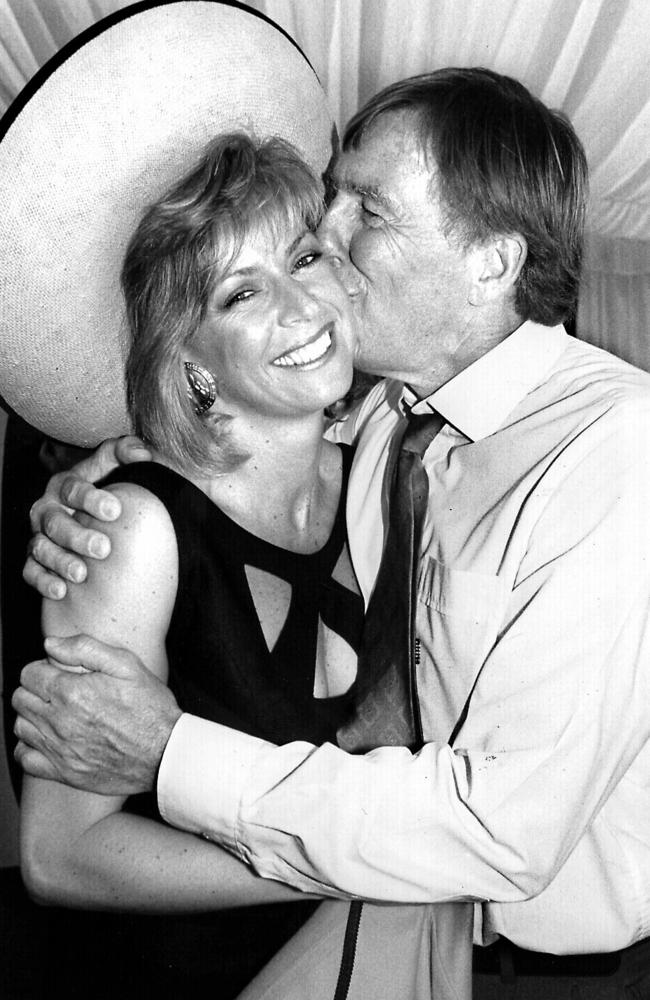
DOG DAYS WITH SINGO
My professional life was humming along, but life at home, which I was now sharing with John Singleton, was hitting some bum notes. In due course it became clear there was one not-inconsiderable impediment to our happy relationship.
John’s dog was a Rhodesian ridgeback, Sonna, who happened to be the son of his former pet, Thug.
‘Sonna’ Thug wasn’t really a fan of mine. I might have fed him and regularly taken him for walks around the nearest park, but I was not his favourite.
And Sonna knew I had drawn a line. He was no longer allowed to sleep on the bed or anywhere in the bedroom.
I was, this dog knew, a large and challenging barrier that had come between a devoted canine and his dog-loving owner. All because of me, he was not allowed to snuggle up to his mate. And no self-respecting pedigree pooch was ever going to let that happen. Sonna, I knew, was considering his options.
When John was there, all was good. When he wasn’t, things were not so cheesy. In the mornings I’d find Sonna lying across the doorway of the bedroom, an immovable beast. To leave the room I had to step over him, and as I did I’d hear a small but definite mutter. He never bit me, or even attempted to, but still I got the feeling this dog was planning my demise.
One unmistakeable sign of his discontent was the sad and sorry state of my shoes, which he’d gnaw and dump in a corner. He’d then bite the heels of every one of them down to the bone.
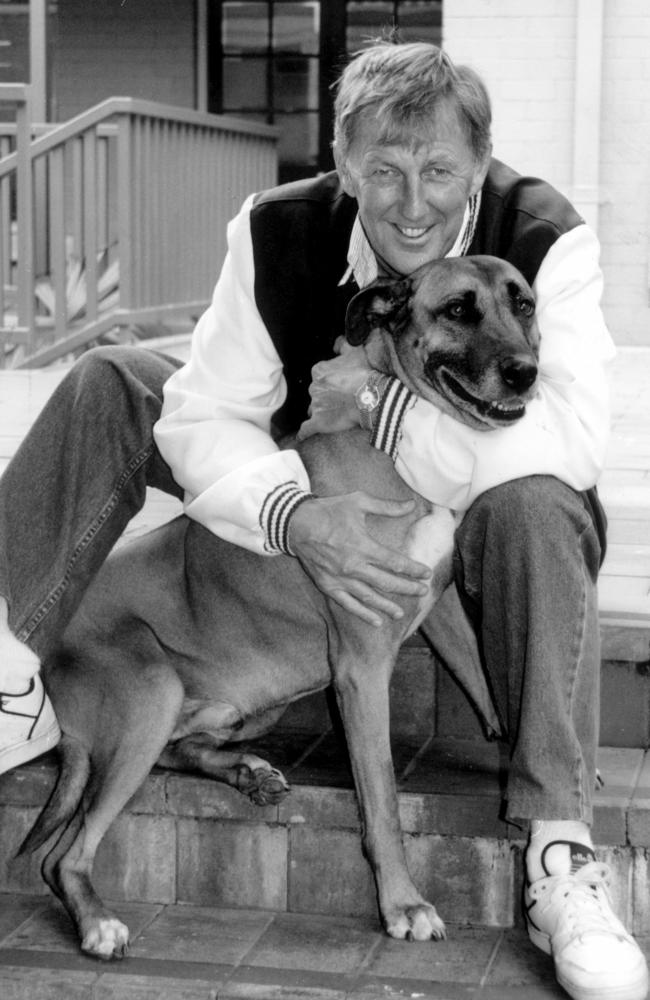
It’s possible that if I’d allowed Son of Thug back in under the doona, the three of us could have been happy. But really, there was only ever going to be one master, and it wasn’t me.
Understanding my place in the Singleton abode ultimately proved to be a tricky business – especially after I realised Son of Thug was not the only one trying to get into the sack.
It was time to go, and amongst the detritus, I found a note left for me on the kitchen table that sealed the deal. Take Beth Ryan out for a run, it said.
Julie, my near and dear friend, always knows what needs to be said before I do.
I remember her telling me once that she didn’t much like some of the people I’d considered to be friends. And in time, she proved to be right.
So, come this new personal plummet, she was there. She declared that I needed to give myself a break, stop beating myself up over bad decisions and relationships. And I needed to laugh.
The perfect solution was indeed to get away. To take Beth Ryan out for a run. We booked tickets to London and Paris, and off we went.
This was going to be, we declared, the ‘let it rip’ trip.
*
Perhaps it was my French afterglow, but on my return John would come calling again. This time, we would marry. But the hitch with getting hitched was that it had to be a secret.
And even though I understood his reasoning, it didn’t sit well with me. Ultimately, I bade Sonna and John farewell.
For a long time I’d had to tread a delicate line with Kerry Packer. I always believed I knew where his allegiances lay.
I might have been married to his mate John Singleton, yet to Kerry, I would always be an employee.
But when John and I parted, I was in for a surprise. Kerry asked me to come into his office and I wasn’t sure why. It turned out he wanted to talk about the marriage that had ended when it had barely begun.
Kerry asked what he could do to help restore the relationship. He was incredibly kind and it was clear his relationship with John was one he valued.
When I seemed upset, he stood up, walked into another room and returned with a perfectly pressed white handkerchief.
Over the years, at his request, we had dinner together, usually at one of his favourite Italian restaurants. He was never inappropriate and always good company. Yet, I was never sure what he made of me.
When Liz met Russell: Hayes on THAT interview with Brand
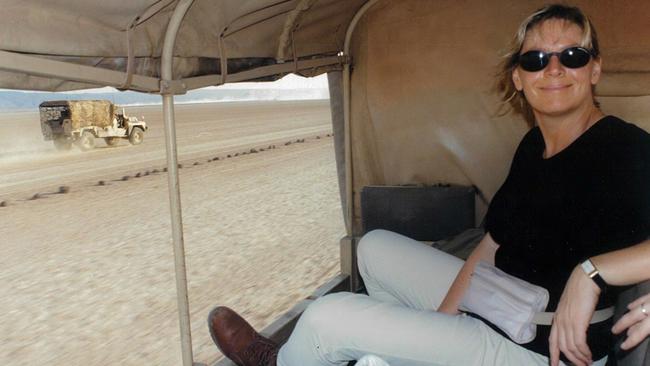
LOVE AND WAR
Trading the Today desk for a correspondent role on 60 Minutes took Liz all over the world:
meeting stars, exposing criminals, going into war zones … and meeting the man who would
become her long-term partner.
APRIL, 1997: The front line in the battle with the Taliban was in Afghanistan’s Panjshir Valley, where we tracked down the soldiers of the Northern Alliance. With a nod from their commander, these fighters were prepared to show us the line between them and the Taliban.
It would be my first walk into a war zone. There was much for me to learn.
From where I stood, at first it looked like another stretch of dusty Afghan countryside with its own unexpected beauty.
But the tranquillity was shattered pretty quickly. As soldiers led us down a road towards a river, sounds of gunfire rang out.
Everyone else fell into the nearest ditch, but I momentarily remained standing, looking around.
It was naivety at its worst. I should have dropped like a rag doll, but instead I heard shouting, then felt a sudden yank of my hand.
Ben, the sound man, was screaming at me to get down and pulling me to the ground. My heart almost fell out. Now I was desperately seeking cover.
The soldiers were concerned that the camera tripod we were carrying looked like a lethal shoulder-firing weapon, a rocket-propelled grenade, and now the enemy across the river had us in their sights. We carefully continued towards a bridge, where I attempted to utter words and complete a piece to camera while trying not to become the target. I was leaning down and watching, to my horror, as everyone around us left, retreating behind a nearby wall.
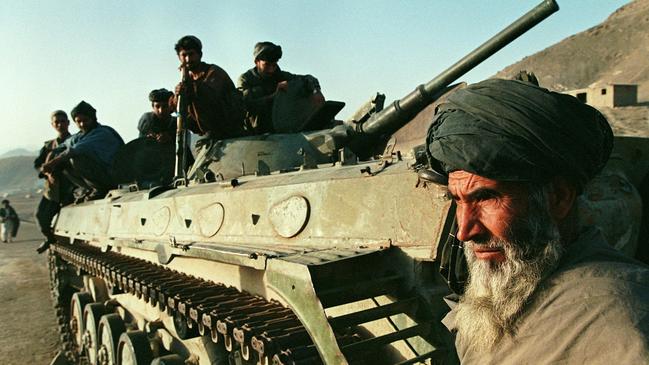
I remember thinking that if our mates the soldiers weren’t prepared to stay with us, why were we here? But I knew the quicker I finished this piece to camera, the quicker we’d be gone.
I got the job done, but by now I was experiencing a new level of terror. If this was part of earning my 60 Minutes badge, I realised I was going to have to harden up.
Whether it was my fear, or his fear that they might have to ship me home in a box, from that moment Ben kept looking out for me. I would hear him regularly ask: was I OK, did I need anything?
Ben was a long-time sound recordist and a well-travelled crew member when I arrived in the 60 Minutes offices. He’d seen plenty of places, met plenty of important people and had experienced plenty of incredible and hair-raising moments. He already knew his way around the world: where to find the best restaurants, pubs and bars, and where to go to have the best time.
Ben was disarmingly charming. I loved his laughter and his great stories, and soon recognised we shared the same values. Yet as obvious to each other as our mutual attraction was, we were both hesitant about the next step.
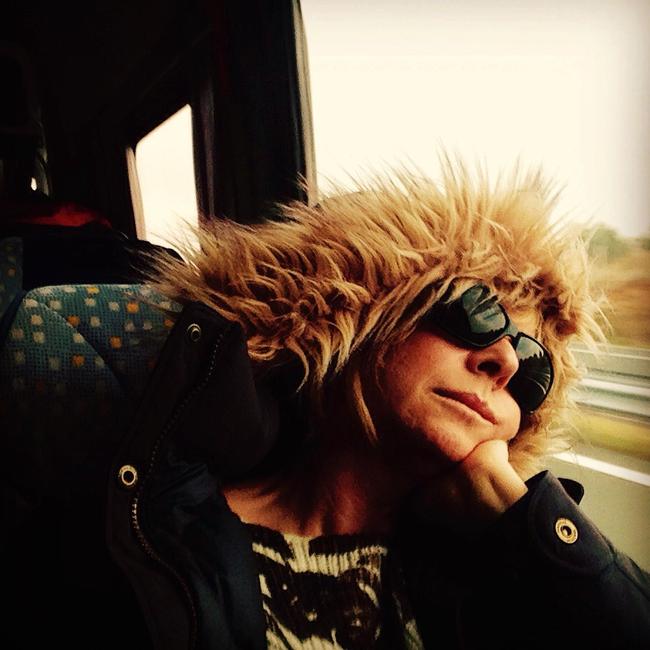
THE HARDEST STORY
From growing up on Oxley Island, on the Mid North Coast of NSW, to her life as a media A-
lister, family have always been central to Liz. And it was a family tragedy that led to the most
important story of her life.
SEPTEMBER, 2019: I touched the soft, pale skin on my father’s face and ran my fingers through his hair. He felt warm. But his breath had stopped. My world fell silent.
This day was the one I’d been dreading. My four brothers and I had taken turns keeping vigil, sitting with Dad and sleeping by his hospital bed. I’d had hours to contemplate. To prepare myself. But now, as our family gathered, I was totally unprepared for the stillness.
The end was unbearable.
It was 11 September, a date most of the world knows as 9/11. But for us it would now forever be the day our Dad and our rock, Bryan Ryan, died – little more than 12 months after Mum.
In that most intimate moment, I already knew I would need to tell the hardest story of my career. A gut-wrenching journey into my father’s last days of life in a rural hospital, and why that life had now ended.
At 88 years of age, Dad had already done a few rounds in the health ring, and won. Dad was an old-fashioned man with traditional values.
He was trusting and supportive and a man who valued the expertise of others, including those he trusted with his health.
It’s why he deserved so much more from a hospital system that, in the end, didn’t seem to value him.
In the weeks before his death, he’d suffered pneumonia. An ambulance ride to the local emergency department had seen his chest infection successfully treated. But his recuperation in the nearby private hospital would end in disaster. The day before he was due to come home, he suffered a catastrophic stroke.
In the middle of the night, as my older brother, Chris, and I stood at the end of Dad’s bed, I picked up a clipboard of notes left on the covers at his feet. There in black and white was a terrible revelation.
Dad had not received, of all things, his anti-stroke medication for the entire length of his stay in the private hospital. Eight days. We were horrified.
The discovery would set me on a course of no return.
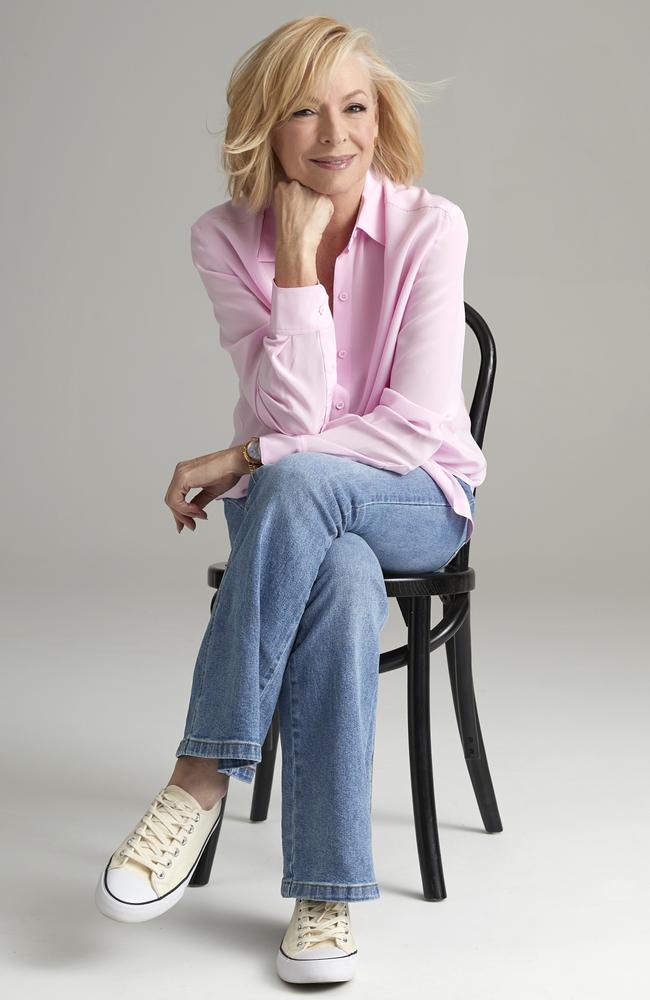
*
Both hospitals where Dad had been treated admitted that serious errors had occurred, and both stated that there would be changes to address the mistakes. But in reality, the issues were never going to be addressed unless some home truths about healthcare in rural, regional and remote areas were brought out into the light.
I began working with ABC journalist Jamelle Wells, who had also undergone a harrowing experience with the rural health system. I collated information from those who manned the wards, the ambulances, the clinics and the hospitals. They were, they told me, stretched to breaking point. They could only do so much. Some were cranky. Some had received little response when they voiced their complaints, and some told me they’d simply had to walk away.
I received calls, letters and emails. I met people in car parks, in their homes and in the dark, with promises not to reveal their identity. Talking out of school, I was repeatedly told, would attract trouble, even punishment. And when it was clear I was on the hunt, various staff said they’d been told not to talk to me by their hospital managers.
And then there were the devastating stories from families. Those who said they felt
powerless. People who believed they didn’t have a voice.
When I took a seat in the studio to record the introduction to my story, it was a year to the day since Dad had died. I wasn’t sure I could do it.
This was not a story I wanted to tell, and not one I should have needed to tell. And it was the hardest story I would ever tell.
‘The Greatest Loss’ went to air on 13 September 2020. The viewer response was overwhelming and within the week, the New South Wales Government had announced that it would establish an inquiry into the State’s rural, regional and remote health and hospital services.
I’m Liz Hayes will be published by HarperCollins on November 15 and is available to
pre-order now.
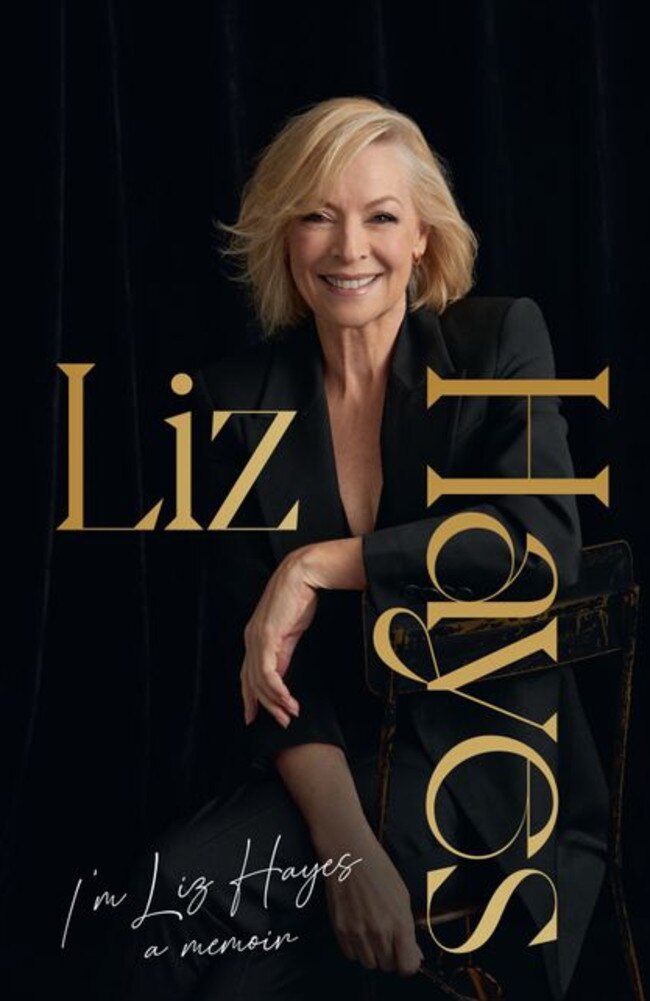
Originally published as From Singo’s jealous dog and Packer’s secret diet, to love, war and a sick stalker, TV legend Liz Hayes shares her life story at last


